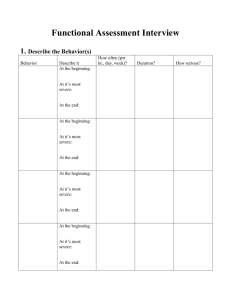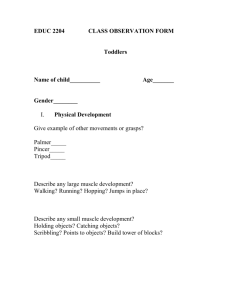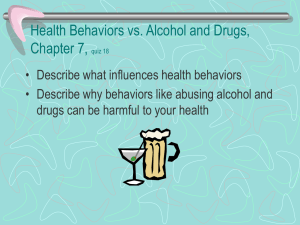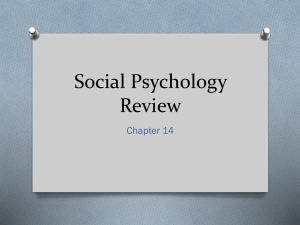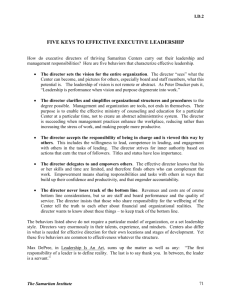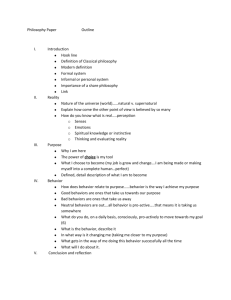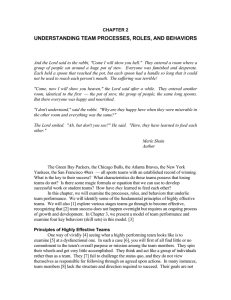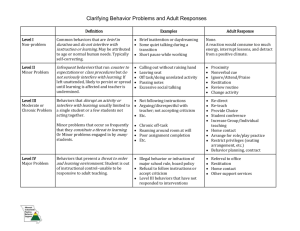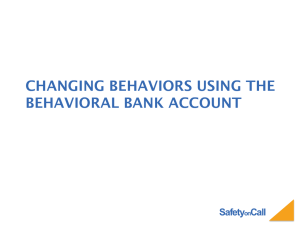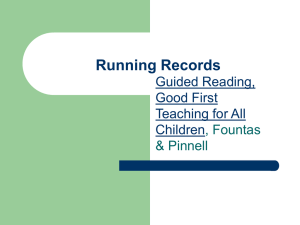Characteristics of Effective Groups I. All group members work toward
advertisement
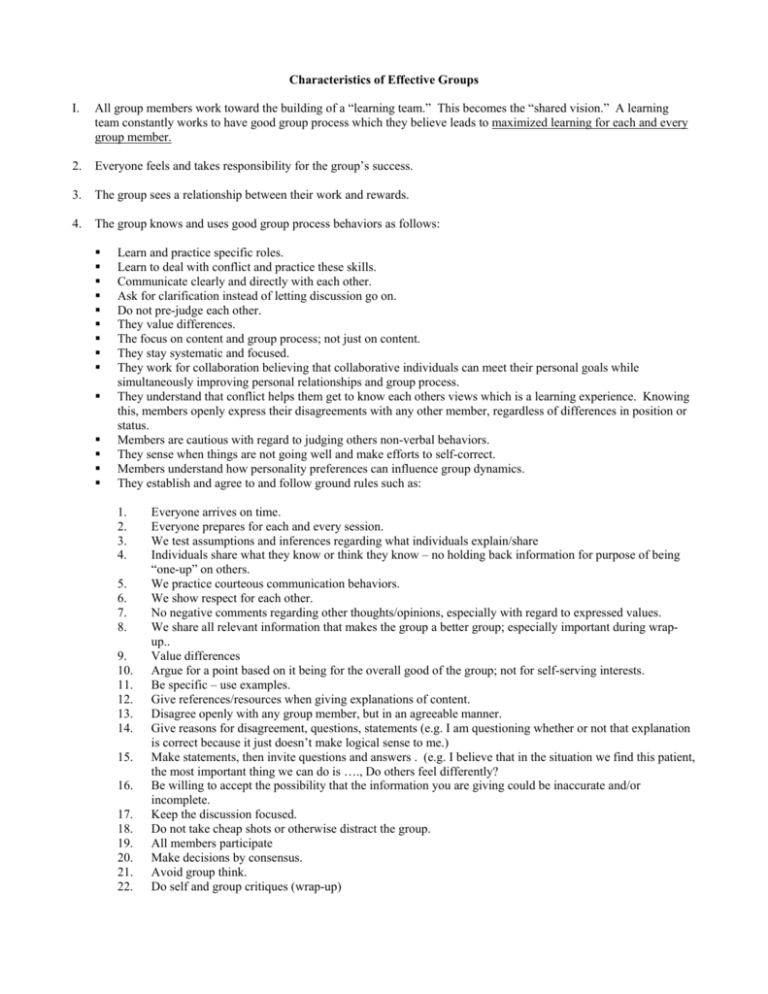
Characteristics of Effective Groups I. All group members work toward the building of a “learning team.” This becomes the “shared vision.” A learning team constantly works to have good group process which they believe leads to maximized learning for each and every group member. 2. Everyone feels and takes responsibility for the group’s success. 3. The group sees a relationship between their work and rewards. 4. The group knows and uses good group process behaviors as follows: Learn and practice specific roles. Learn to deal with conflict and practice these skills. Communicate clearly and directly with each other. Ask for clarification instead of letting discussion go on. Do not pre-judge each other. They value differences. The focus on content and group process; not just on content. They stay systematic and focused. They work for collaboration believing that collaborative individuals can meet their personal goals while simultaneously improving personal relationships and group process. They understand that conflict helps them get to know each others views which is a learning experience. Knowing this, members openly express their disagreements with any other member, regardless of differences in position or status. Members are cautious with regard to judging others non-verbal behaviors. They sense when things are not going well and make efforts to self-correct. Members understand how personality preferences can influence group dynamics. They establish and agree to and follow ground rules such as: 1. 2. 3. 4. 5. 6. 7. 8. 9. 10. 11. 12. 13. 14. 15. 16. 17. 18. 19. 20. 21. 22. Everyone arrives on time. Everyone prepares for each and every session. We test assumptions and inferences regarding what individuals explain/share Individuals share what they know or think they know – no holding back information for purpose of being “one-up” on others. We practice courteous communication behaviors. We show respect for each other. No negative comments regarding other thoughts/opinions, especially with regard to expressed values. We share all relevant information that makes the group a better group; especially important during wrapup.. Value differences Argue for a point based on it being for the overall good of the group; not for self-serving interests. Be specific – use examples. Give references/resources when giving explanations of content. Disagree openly with any group member, but in an agreeable manner. Give reasons for disagreement, questions, statements (e.g. I am questioning whether or not that explanation is correct because it just doesn’t make logical sense to me.) Make statements, then invite questions and answers . (e.g. I believe that in the situation we find this patient, the most important thing we can do is …., Do others feel differently? Be willing to accept the possibility that the information you are giving could be inaccurate and/or incomplete. Keep the discussion focused. Do not take cheap shots or otherwise distract the group. All members participate Make decisions by consensus. Avoid group think. Do self and group critiques (wrap-up)
